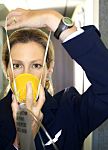 Physician leaders understand COVID-19 is a unique type of disaster.
Physician leaders understand COVID-19 is a unique type of disaster.
Instead of a POINT crisis and a recovery; like a
- Tornado / Hurricane
- Flood
- Terrorist attack
... where you get a KaBoom, an acute crisis and a recovery over days to weeks. You know, the kinds of disasters we have drills for, the ones we have code names for.
This pandemic is a series of slow tidal waves, overwhelming everything and everyone for weeks at a time as the wave hits, only to return months later and do it again.
Sheer fatigue, exhaustion, even a sense of helplessness and hopelessness are common for you and your care team.
All of us can rally and unite in response to an acute crisis. All hands on deck!
But how do you continue to lead and remain a high performance team for weeks and months on end when the tide of illness refuses to recede?
============
The Tools and Support to be
an Effective Physician Wellness Champion
Quadruple Aim Physician Leadership Retreat
=============
An article in the Harvard Business Review this week by Merete Wedell-Wedellsborg shares some interesting insights and recommendations.
Two phases of our psychological response to crisis:
AROUSAL vs. STAMINA
From the article:
"Compared to the adrenaline-fueled response in the spring and the false dawn about the recovery over the summer, the second wave requires a new understanding of personal resilience. In the first wave, personal resilience relied on a psychological emergency response called arousal.
Shocks, threats, and sudden uncertainty make us super alert and we activate resources that are skin-deep: Adrenaline, fighting spirit, and pulling together. This response is impulsive, almost universal, and immediately recognizable across many teams.
Personal resilience in the second wave is a different story because it relies on psychological stamina. Psychological stamina rests on more deep-seated emotional patterns shaped by our individual needs, histories, and experiences.
Stamina is required because, frankly, the second wave is not exciting at all. People report feeling bored, disconnected, and unnerved. In contrast to the skin-deep reactions of the first wave, the second wave requires perseverance, endurance, and even defiance against the randomness, gloom, and burden of the pandemic."
Ms. Wedell-Wedellsborg goes on to recommend leaders help the team develop the required psychological stamina with these three practices. Her advice was not written for clinical care teams, so let me adapt it for our use.
A Physician Leaders Guide
Psychological Stamina vs. Pandemic Exhaustion
1) Dual Awareness: Urgency vs. Importance
 In the heat of the crisis, urgent issues constantly demand your attention. On many days the in-your-face nature of your patient's acute needs drives you into survival mode, just trying to get to the end of your shift.
In the heat of the crisis, urgent issues constantly demand your attention. On many days the in-your-face nature of your patient's acute needs drives you into survival mode, just trying to get to the end of your shift.
At the same time on a different plane of awareness, the pressure of the pandemic reveals important gaps in your systems of care. It shows you important improvements in communication and care delivery you can make both in your day-to-day operations and in the wake of COVID-19.
Think of it as the different wavelengths of DOING and LEARNING.
One way to build psychological resilience is to maintain some fraction of your awareness on what you are learning - both for you and your team. Don't let urgency focus you only on the completion of the tasks at hand.
Make sure to keep holding your monthly staff meetings and daily huddles. Ask learning questions.
- What did we learn today/this week/this month?
- What can we change now to apply this learning?
- What can we change in the wake of the pandemic to apply this learning?
- How will we document this so it does not get lost?
2) Balance Compassion and Containment
 Compassion is essential. We must be on the lookout for struggle and suffering, trauma and burnout both personally and on our teams. You must know the support resources available to you and your staff and be immediately capable of requesting or referring people to additional support.
Compassion is essential. We must be on the lookout for struggle and suffering, trauma and burnout both personally and on our teams. You must know the support resources available to you and your staff and be immediately capable of requesting or referring people to additional support.
Another key is to drop your Superman/Superwoman programming. Admit when you are stressed or struggling to your teams. Tell the truth about your experience so everyone on your team knows it is OK to be human and to ask for support when you need it.
It is also important to step outside the cocoon of compassion to keep challenging your team to action and resolve. If you are only focused on compassion, there is a danger of learned helplessness and overwhelm. "Let's get back to work". Refocus the team on the difference they make, the patients and family members they helped and the job they do that is one only they can perform.
Think of this as perhaps the equivalent of "tough love". Or an example of "Yes ... And".
"Yes this work is difficult and we all struggle under these circumstances ... And let's take
a breather and get back to it."
3) Energize everyone, every day
 Do what you can to infuse energy into your team and your work every day.
Do what you can to infuse energy into your team and your work every day.
- Remove wasted motion and any projects or activities that distract from your patient care.
- Play games by keeping score and rewarding milestones.
- Tell success stories, no matter how small.
- Say thank you early and often.
- Take a breath and soak it up when some one says thanks to you.
- Remind your people this will not last forever, every day is one less to the end of the tunnel.
NOTE: In order to be a source of energy to your team, you must manage your personal energy.
Practice radical self care in your off hours. Rest, nutrition, gentle exercise and stretching, maybe some meditation. Whatever you do to pamper and care for yourself, now is the time to pay it forward to your own body and your own energy accounts.
Leader Head's Up
 If you find your attitude and your energy are negative, dark, hopeless, helpless and do not respond to rest and self-care ... PUT YOUR MASK ON FIRST and ask for help and support. Set a healthy example for your team. Tell them what you are experiencing and ge the care you need to recover. Do it today.
If you find your attitude and your energy are negative, dark, hopeless, helpless and do not respond to rest and self-care ... PUT YOUR MASK ON FIRST and ask for help and support. Set a healthy example for your team. Tell them what you are experiencing and ge the care you need to recover. Do it today.
This blog post is based on an article in the HBR titled: How to Lead When Your Team Is Exhausted — and You Are, Too
=====================
PLEASE LEAVE A COMMENT
How do you support psychological resilience for yourself and your teams these days?

